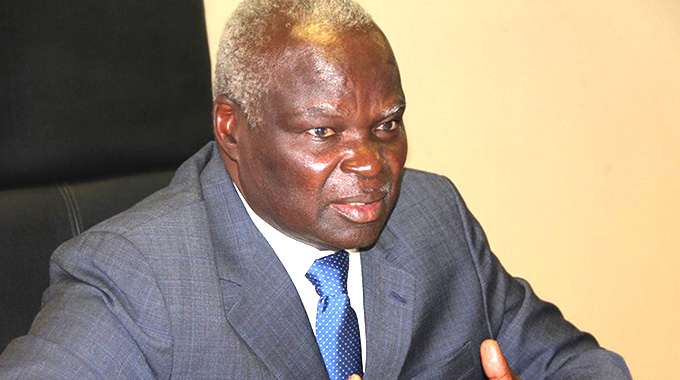Bid to nullify city land deal fails

Fidelis Munyoro
Chief Court Reporter
The bid led by Harare North legislator Mr Allan Norman Markham to nullify a deed of settlement involving State land between Augur Investments and the City of Harare has failed after the High Court threw out the application because the Markham group had three preliminary fatal flaws in their court application.
Mr Markham along with a company called Tavonga Savings Scheme and Harare resident Mr Jacob Pikicha had sued nine respondents over Stand 654 Pomona: City of Harare, Augur, Ministry of Local Government and Public Works, Mr Kenneth Sharpe, Ms Tatiana Aleshina, Mr Michael van Blerk, Doorex Properties, the Registrar of Deeds and the President of Zimbabwe.
They wanted the deal cancelled on the grounds that it was fraudulent.
But as emerged in just the preliminary legal moves, the Markham group missed that no one can sue the President, in either his official or personal capacity, without the leave of the High Court. That was not obtained. The second fatal flaw was that they had no legal standing. They were not a direct part of the contract nor had any interest in the property, and so were unable to bring any legal action to enforce or negate the contract.
Finally, they chose a method of bringing the matter to court that would not allow the facts to be contested in court hearings, and they should have realised that such a contest would be almost certain since the city council has consistently maintained that the deed of settlement entered between the parties was in good faith and was made in the best interests of the public.
In a judgment delivered yesterday, Justice David Mangota upheld preliminary points raised by the legal counsel representing Augur and the council, Advocate Tawanda Zhuwarara and Charles Kwaramba.
The Markham group sued the President in violation of the High Court Rules. These rules provide that leave must be obtained first to lodge civil proceedings against the Head of State whether in his personal or official capacity. The President is not exempt from legal suits, but a judge needs to confirm that it can go ahead so as to prevent vexatious listing of the President.
The Markham group conceded that they sued the President without having obtained leave of the court to do so. In his ruling Justice Mangota also found that Mr Markham and his co-applicants were not part of the contract between the city council and Augur to claim a direct and substantial interest in the contract.
The basic idea of contract is that people must be bound by the contracts they make with each other and Justice Mangota ruled it would be ridiculous if total strangers could sue or be sued on contracts which they are in no way connected to.
“I am satisfied that applicants who are total strangers to the respondents do not have the requisite locus to sue the latter,” he said.
“Their suit is akin to a leap into the dark, so to speak. It hung on nothing. It was therefore, completely devoid of merit.”
Justice Mangota also said the Markham group and his co-applicants could not be allowed to approach the court via motion proceedings in circumstances where they are aware that there are material disputes of fact, which cannot be resolved on papers.
The applicants should have realised that the serious allegations which they levelled against the respondents would be contested. They should, therefore, have proceeded by way of an action, and not a motion, to allow the respondents to test the veracity of the allegations.
It was on this basis that the respondents succeeded in all the three preliminary points.
“They showed that the application which sued the President without leave of the court is fatally defective and cannot, therefore, stand,” said Justice Mangota.
“They showed further that the applicants lack the locus to sue the respondents and that the suit which was brought against them was fraught with material disputes of fact which cannot be resolved on papers.”
The council and Augur hammered a settlement over their contractual dispute following negotiations of a compromise, which culminated in the deed of settlement being lodged with the Supreme Court and subsequently reduced to an order of the High Court.
The Government has since transferred the land to Augur through its property concern Doorex Properties after all the essential legal processes were concluded.
The three top Augur executives were sued by the Markham group with their companies, but Mr Sharpe, Mrs Aleshina and Mr van Blerk and Doorex challenged the motion.
They argued that Mr Markham and his co-applicants had no legal standing to seek to impugn a Deed of Settlement entered into by Augur and Harare highlighting that “our law is clear, parties who are not privy to a contract cannot sue or be sued on it”.
The applicants being the third parties, they argued, were barred from seeking the cancellation of contractual arrangements that exist among their clients.
They also argued that the court could not be called to negate the arrangement concluded in the Supreme Court and immortalised in the High Court by parties that were never privy to the dispute or attendant litigation.










Comments